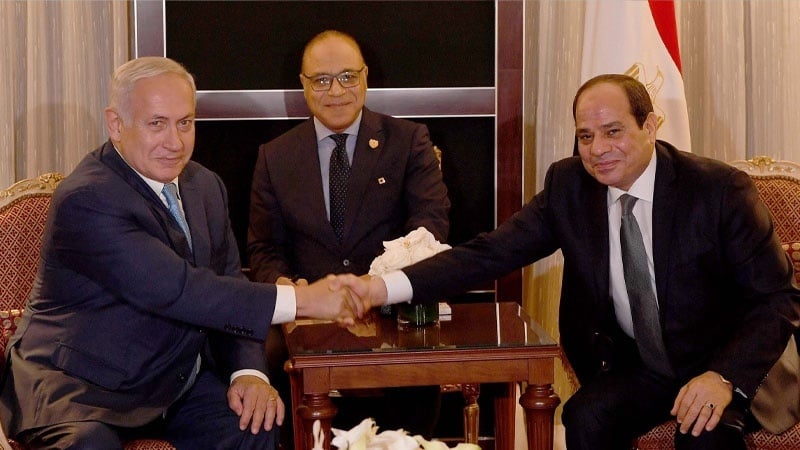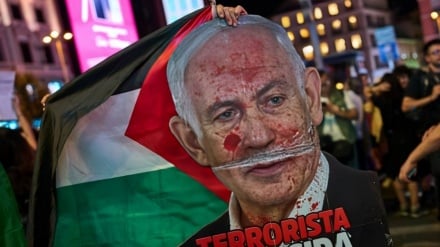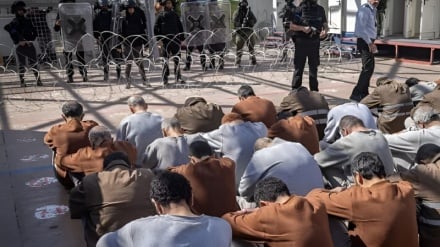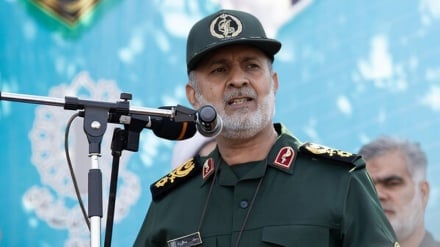Egypt and Gaza war; efforts to pursue a dual strategy
-

Egypt and Gaza war; efforts to pursue a dual strategy
Pars Today - The start of the Gaza war following the Al-Aqsa Storm operation on October 7, 2023, marked a turning point in Egypt's foreign and domestic policies.
According to Pars Today, Egypt's collective actions regarding the Gaza War, from the Al-Aqsa Storm operation on October 7, 2023, to the present day, must be analyzed within the framework of a dual strategy: managing internal and external pressures while striving to prevent a decline in its regional role.
Egypt suddenly found itself facing a situation that simultaneously entailed intense internal and external pressures and the threat of diminishing its historical regional role.
This situation required not only immediate security and diplomatic responses but also the formulation of a long-term strategy to preserve Egypt's traditional role in the Palestinian issue.
Regarding the Gaza war, Egypt was facing various factors such as international pressures, internal security considerations, and its commitment to the Palestinian cause.
Its positions and actions concerning the Gaza war can be outlined along several key axes as follows:
Controlling public opinion and managing political crisis
Public opinion in Egypt has historically been linked to the Palestinian cause, and any escalation of the crisis in Gaza could lead to an outpouring of public anger and nationwide protests. After October 7th, a wave of sympathy for the Palestinians emerged among the Egyptian people, which had the potential to destabilize the domestic political situation.
The Egyptian government carefully controlled gatherings and, using media tools and security restrictions, prevented them from spreading. This management had a dual objective: to prevent a political crisis and to maintain public order without being seen by public opinion as taking an anti-Palestinian stance.
Balancing conflicting external demands
On the international stage, Egypt found itself in a difficult position. A spectrum of global and regional actors, particularly Western governments and some Arab states, held positions opposed to Hamas and the resistance. They pressured Egypt to align with Israel's security policies.
On the other hand, various countries and groups called on Egypt to play an active and unequivocal role in supporting Palestine. In response, Cairo adopted a shrewd, composite strategy: publicly condemning Israeli attacks, defining the forced displacement of Gazans as a non-negotiable red line, pressuring Israel to accept a ceasefire, and taking practical steps to send humanitarian aid into Gaza.
This policy succeeded, to some extent, in managing the demands of both sides and avoiding a direct confrontation with either front.
Egypt's dual role: Gatekeeper of border and unfruitful mediation
As the neighbor to the Gaza Strip, Egypt has assumed a dual role. On one hand, its control of the Rafah Crossing—Gaza's sole outlet to the outside world—has positioned the country as the humanitarian "gatekeeper" for the region. Whether this crossing is open or closed has consistently been a critical issue for the delivery of aid and the movement of people.
On the other hand, Egypt has a long history of mediating between Israel and Palestinian groups. During various periods, including the 2014 Gaza war and recent negotiations, it has hosted talks aimed at achieving a ceasefire. However, this mediation has not always been successful. Currently, Egypt, alongside Qatar, continues its efforts to secure a ceasefire in the Gaza war.
National security: Cairo's red line against forced displacement
Egypt's most significant concern regarding the Gaza war is its national security. Cairo strongly opposes any plan for the forced displacement of Palestinians from Gaza into the Sinai Desert—a goal the Zionist regime vigorously pursues—viewing it as a direct threat to its sovereignty and internal stability.
Egyptian officials consider this scenario a "direct threat to national security" because it would impose a heavy human and security burden on the country. There are even rumors that the US might link resolving the Grand Ethiopian Renaissance Dam (GERD) dispute with Ethiopia to Egypt's acceptance of Palestinians—a claim Egypt categorically denies.
This concern has prompted the Egyptian military to significantly reinforce its presence along the border with Gaza, both to prevent security infiltrations and to send a clear political message to the Israeli side rejecting any solution that comes at Egypt's expense.
Economic pressures and levers of influence
The Zionist regime has utilized economic leverage to pressure Egypt. A prime example was Benjamin Netanyahu, the prime minister of the Zionist regime, suspending a $35 billion gas deal just one month after it was signed.
The stated aims of this move were to force Egypt to withdraw its forces from Sinai, increase pressure on Hamas, and soften Cairo's stance regarding the plan for the forced displacement of Palestinians from Gaza. This action shows Israel's attempt to use economic interests as leverage to advance its own political and security objectives.
Conclusion
Overall, Egypt's position regarding the Gaza war can be seen as a blend of solidarity with the Palestinian people, complex national security calculations and considerations, and an effort to maintain its role as a rational actor on the international stage. This multi-level policy has been pursued using diplomatic, security, and economic tools, enabling Cairo to preserve its position within the dynamics of the Palestinian and Gaza issues.
The future of this strategy depends on Egypt's ability to manage its economic crisis and maintain socio-political cohesion, as any disruption in these areas would quickly weaken the country's position in the complex and rapidly changing landscape of West Asia. Cairo, on one hand, emphasizes the right of Palestinians to establish an independent state and, on the other, seeks to prevent the crisis from spilling over into its own borders. Therefore, it can be said that the Rafah Crossing, ceasefire mediation, and firm opposition to the forced displacement of Palestinians are the three main pillars of Egypt's policy towards the Gaza war, which will shape the future of both Egypt and the entire region.


